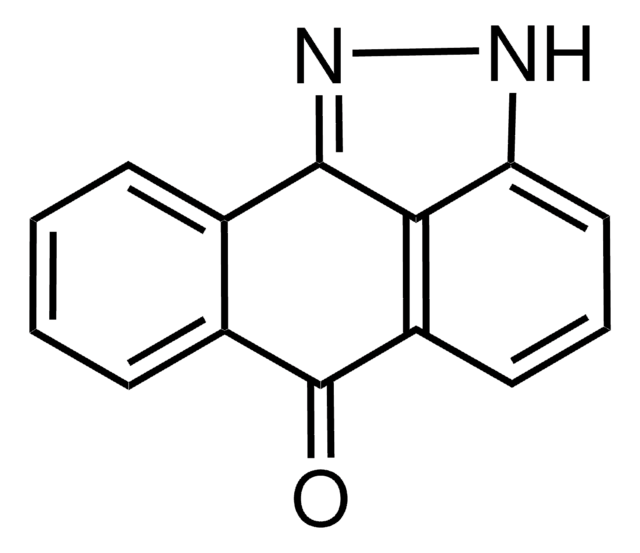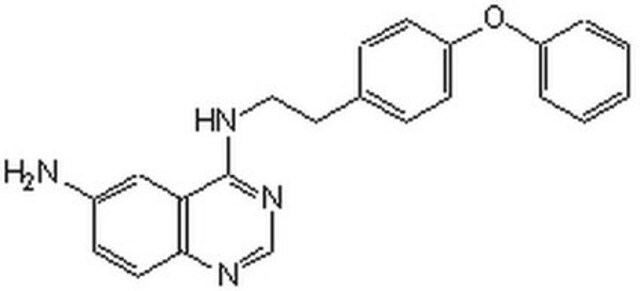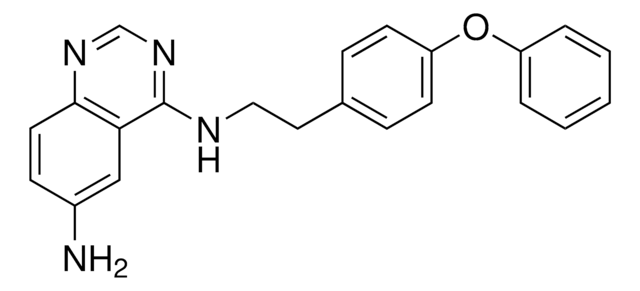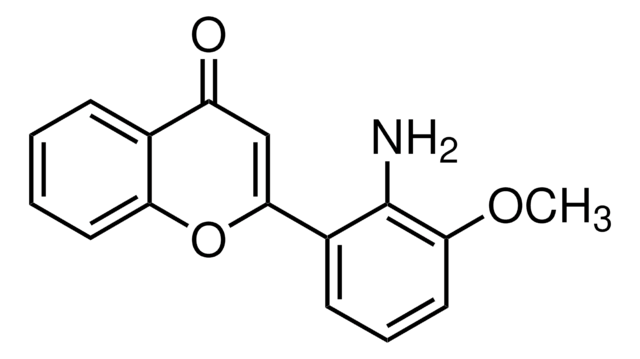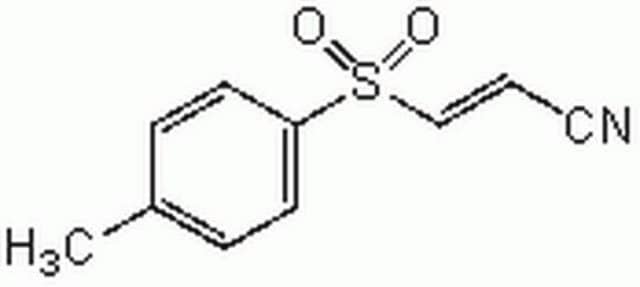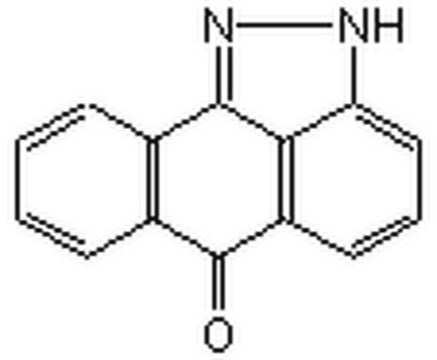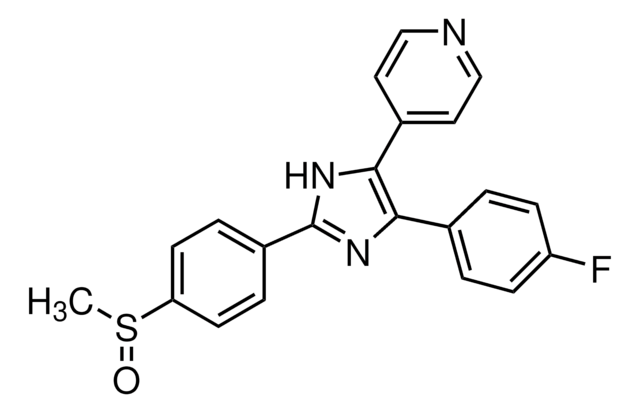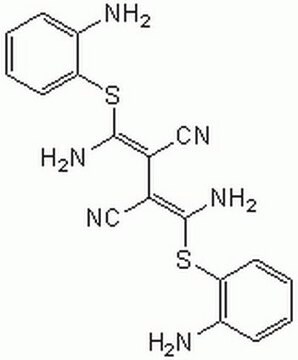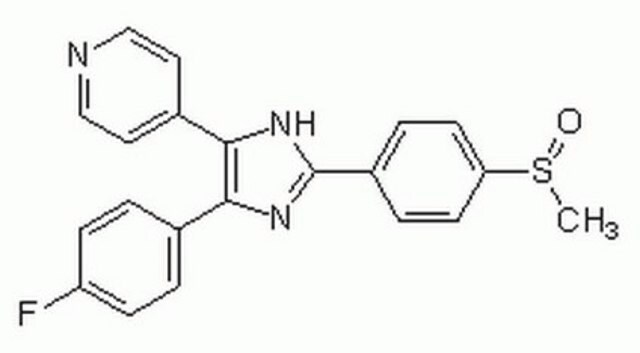513001
PD 98059
InSolution, ≥98%, 5 mg/ml, reversible inhibitor of MAP Kinase Kinase (MEK)
Synonym(s):
InSolution PD 98059, MEK Inhibitor V
About This Item
Recommended Products
Quality Level
Assay
≥98% (HPLC)
form
liquid
manufacturer/tradename
Calbiochem®
storage condition
OK to freeze
protect from light
shipped in
wet ice
storage temp.
−20°C
InChI
1S/C16H13NO3/c1-19-14-8-4-6-11(16(14)17)15-9-12(18)10-5-2-3-7-13(10)20-15/h2-9H,17H2,1H3
InChI key
QFWCYNPOPKQOKV-UHFFFAOYSA-N
General description
Biochem/physiol Actions
MAP kinase kinase (MEK)
Packaging
Warning
Physical form
Reconstitution
Other Notes
Dudley, D.T., et al. 1995. Proc. Natl. Acad. Sci. USA92, 7686.
Langlois, W.J., et al. 1995. J. Biol. Chem.270, 25320.
Pang, L., et al. 1995. J. Biol. Chem.270, 13585.
Waters, S.B., et al. 1995. J. Biol. Chem.270, 20883.
Selected Citations
Lee, J., et al. 2009. Cell Stem Cell5, 76.
Legal Information
Storage Class Code
10 - Combustible liquids
WGK
WGK 2
Flash Point(F)
188.6 °F - closed cup - (Dimethylsulfoxide)
Flash Point(C)
87 °C - closed cup - (Dimethylsulfoxide)
Regulatory Listings
Regulatory Listings are mainly provided for chemical products. Only limited information can be provided here for non-chemical products. No entry means none of the components are listed. It is the user’s obligation to ensure the safe and legal use of the product.
FSL
Group 4: Flammable liquids
Type 3 petroleums
Hazardous rank III
Water insoluble liquid
JAN Code
513001-1ML:
Certificates of Analysis (COA)
Search for Certificates of Analysis (COA) by entering the products Lot/Batch Number. Lot and Batch Numbers can be found on a product’s label following the words ‘Lot’ or ‘Batch’.
Already Own This Product?
Find documentation for the products that you have recently purchased in the Document Library.
Our team of scientists has experience in all areas of research including Life Science, Material Science, Chemical Synthesis, Chromatography, Analytical and many others.
Contact Technical Service
